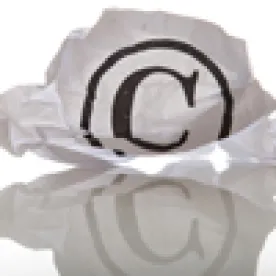It is long established that “ignorance of the law is no excuse,” but what if that ignorance is born out of restricted access to the law? If the full extent of the law can be revealed only by paying subscription fees, is it reasonable for the public to be bound by that law? This is the concern raised by open government advocates who support the public’s inherent right to free access to legal texts, and oppose the government’s ability to copyright any portion of these legal texts.
The U.S. Copyright Office’s guidelines and practices, as codified in 17 U.S.C. § 105, make clear that official, binding edicts of government are not copyrightable. Now, the U.S. Supreme Court intends to clarify the scope of such government edicts. The Court granted certiorari on June 24 to hear the case of Georgia, et al. v. Public.Resource.Org, Inc.
The dispute centers on an open government activist group, Public.Resource.Org, which republished an annotated version of the State of Georgia’s legal code without the state’s permission. Georgia sued the group for copyright infringement, claiming that the annotated version was not a legal edict, but rather simply a commentary on the law. The District Court for the Northern District of Georgia initially sided with the State of Georgia, but the Eleventh Circuit disagreed in October 2018, concluding that the state’s legal code (even in annotated form) is “inherently public domain material” and, as a result, not copyrightable. The three-judge panel in the Eleventh Circuit emphasized that citizens should have “unfettered access to the legal edicts that govern their lives.”
Georgia makes available to the public a simple text of its legal code online at no cost. But the state also hires LexisNexis Group, a private company, to produce an annotated version of the text, which includes citations to relevant cases, as well as analysis and opinions from the state’s Attorney General. The annotated version is available for purchase only. In concluding that this annotated version embodies a legal edict, the Eleventh Circuit highlighted the Attorney General’s participation as one element in the analysis that indicated the formality of the document and its binding nature on Georgia residents.
Amici Curiae supporting Public.Resource.Org fear that if the Supreme Court sides with the State of Georgia, those unwilling or unable to purchase a LexisNexis subscription may be denied access to the state’s own explanation and analysis of the law in which the state’s citizens are expected to abide. They also point out that law students, legal educators, and practitioners of the law should have full access to the state’s interpretation of the law, and that limiting such access impairs the very practice of law.
A ruling in favor of Public.Resource.Org, on the other hand, may chill commercial efforts at elaborating on and clarifying the law in a manner that could prove detrimental to public understanding of the law. The State of Georgia and its supporters argue that the annotations do not themselves have the force of law, but are provided as a valuable service that gives context to the law, and for which copyright protection is appropriate. Georgia government officials say the arrangement allows them to create annotated texts in a cost-effective manner, and that their ability to copyright the annotations prevents unsolicited third parties from publishing incorrect statutory language that may ultimately harm Georgia citizens. The Supreme Court last addressed the question of copyrightability of governmental works in 18881 , when it clarified that state court judges speak for the people, such that their opinions are not copyrightable. With the current term coming to an end this month, we can expect a 21st century interpretation of what constitutes an edict of government sometime in the next term after the Court reconvenes later this fall.
1 Banks v. Manchester, 128 U.S. 244, 9 S.Ct. 36, 32 L.Ed. 425 (1888)



 />i
/>i
